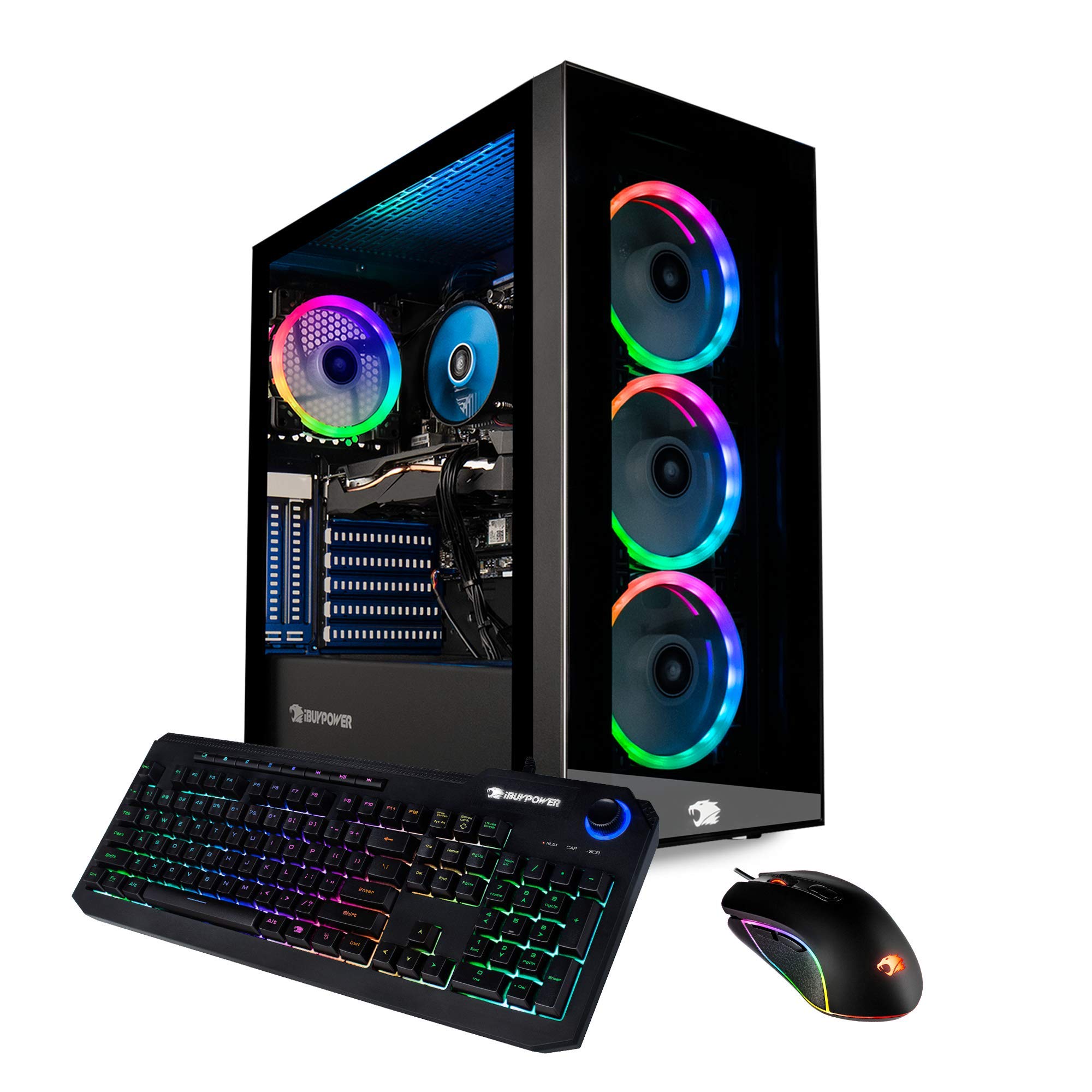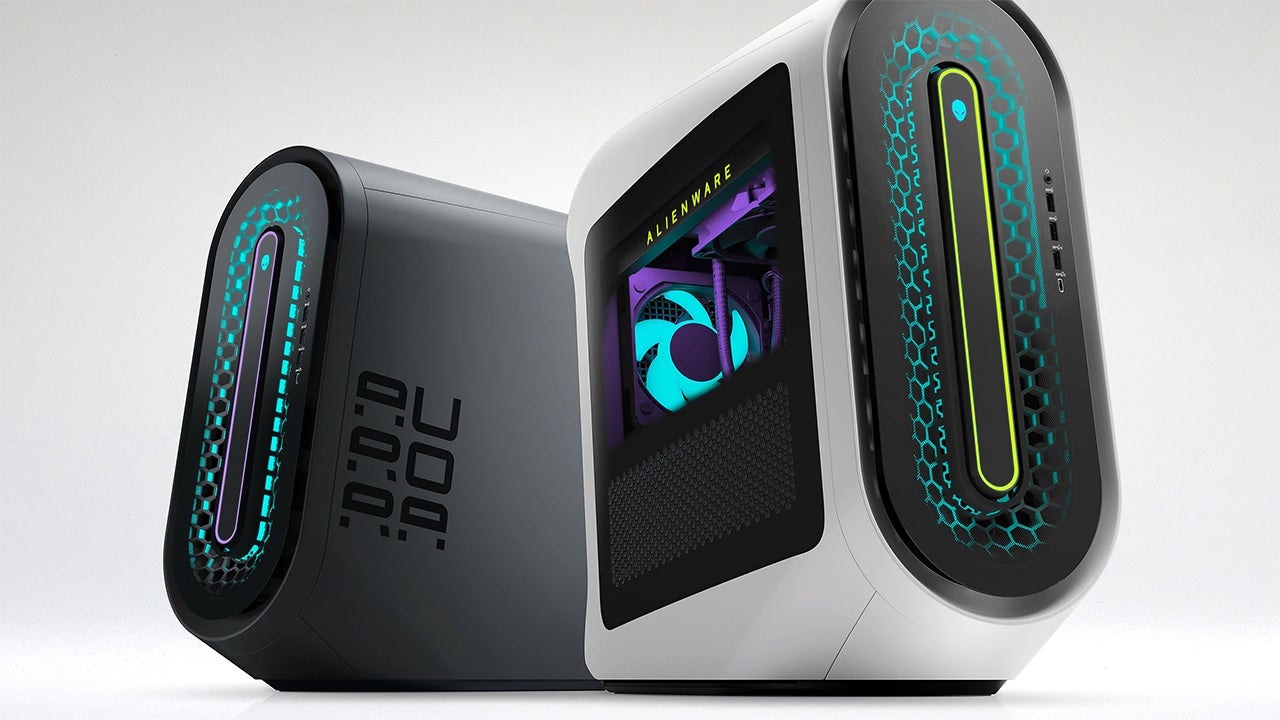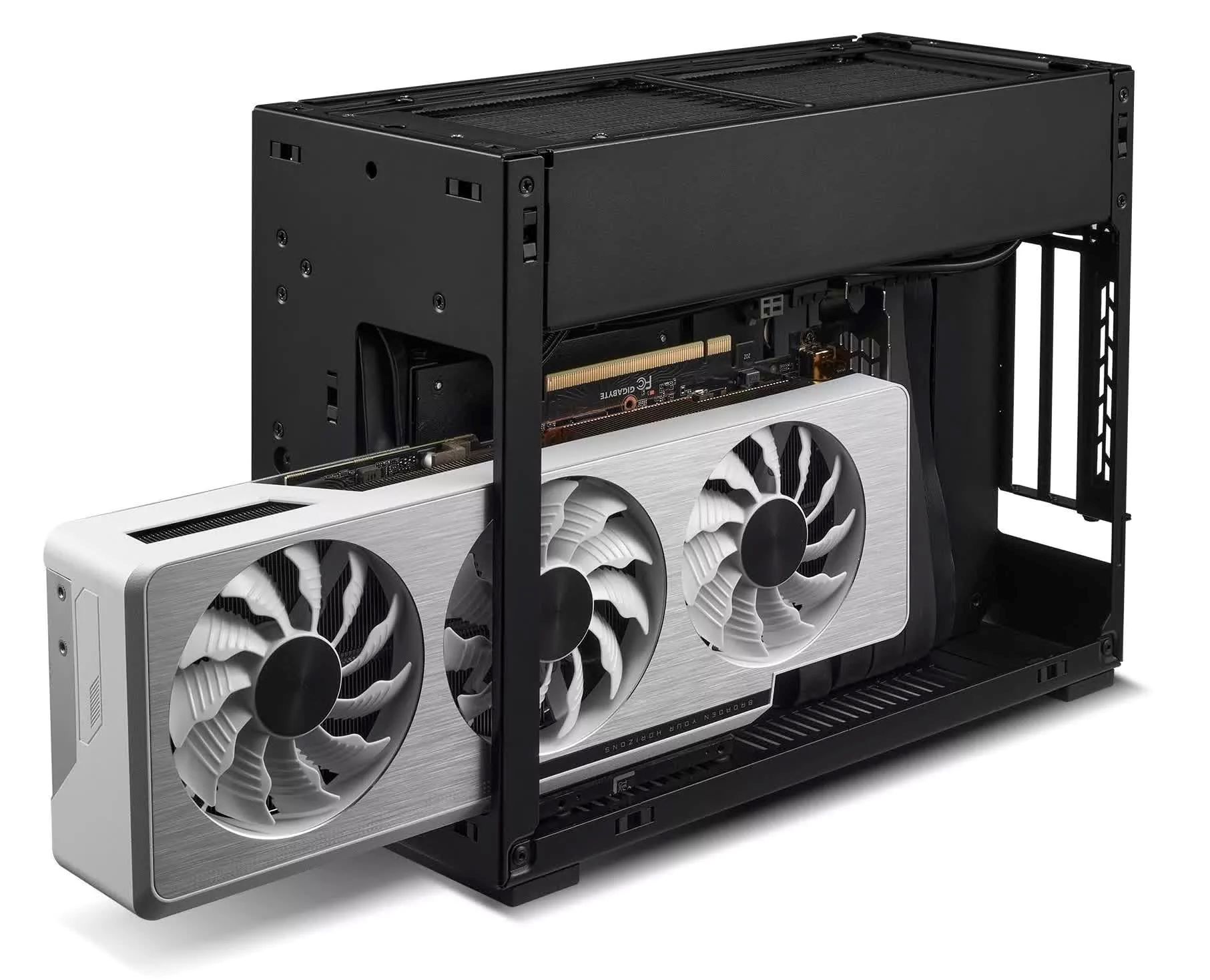Introduction
Welcome to the world of computing! If you’re in the process of building your own computer or upgrading an existing one, you’ve probably come across the term “PSU” or Power Supply Unit. A reliable PSU is essential for the smooth operation and stability of your system, especially if you’re using a powerful processor like the i7.
What exactly is a PSU? In simple terms, it’s the device that provides electrical power to all the components of your computer. Think of it as the heart of your system, pumping electricity to keep everything running smoothly. Without a proper PSU, your computer may experience crashes, power fluctuations, and even hardware damage.
When it comes to choosing a PSU for an i7 processor, it’s important to consider the specific power requirements of your CPU. The i7 is known for its high performance and power-hungry nature, so you’ll need a robust PSU that can supply enough wattage and handle the demands of your processor.
However, selecting the right PSU involves more than just looking at wattage numbers. There are several other factors such as efficiency ratings, modular versus non-modular designs, and the types of connectors that need to be taken into account. In this article, we’ll delve into the intricacies of choosing the perfect PSU for your i7 processor.
Whether you’re a gaming enthusiast, a content creator, or a professional in the field of multimedia, having a reliable and efficient power supply will ensure that your i7 processor performs optimally and lasts for years to come. So let’s dive into the details and discover what you need to know when it comes to picking the right PSU for your i7 build.
What is a PSU?
A PSU, or Power Supply Unit, is a crucial component of any computer system. It is responsible for converting the electricity from your wall outlet into the appropriate voltage and current needed to power the various components of your computer. Without a PSU, your computer would not be able to function.
The main function of a PSU is to supply stable and reliable power to all the internal components, including the motherboard, processor, graphics card, memory modules, and storage devices. It ensures that these components receive a consistent and efficient supply of power, preventing any potential damage or instability.
PSUs come in different wattage ratings, and the wattage determines how much power the PSU can supply to your system. For an i7 processor, which is known for its high-performance capabilities, a PSU with a higher wattage is usually recommended. This is because the i7 processors, especially the more powerful models, require a significant amount of power to operate at their full potential.
Along with providing power, PSUs also play a crucial role in protecting your system from electrical surges or fluctuations in the power supply. They often include features such as over-voltage protection (OVP), under-voltage protection (UVP), and short-circuit protection (SCP) to safeguard your components from any potential damage due to power irregularities.
PSUs can be categorized into two types: standard ATX and modular. Standard ATX PSUs have fixed cables that are permanently attached to the unit, making cable management and organization a bit more challenging. On the other hand, modular PSUs allow you to connect only the cables you need, resulting in a neater and more efficient build.
When choosing a PSU for your i7 build, it’s essential to consider not only the wattage but also other factors like efficiency ratings, certifications, and the connectivity options it offers. These factors will ensure that your system receives the most efficient and reliable power supply, ultimately enhancing its performance and longevity.
Power Requirements for an i7 Processor
The i7 processors are known for their high-performance capabilities, making them a popular choice among gamers, content creators, and professionals who require a powerful computing experience. However, with great power comes the need for adequate power supply. The power requirements of an i7 processor can vary depending on the specific model and its intended usage.
Typically, an i7 processor requires a higher amount of power compared to other CPUs. The power consumption can range from 65 watts for lower-end models to 140 watts for the more powerful variants. It’s crucial to consider the power requirements of your specific i7 model to ensure that your PSU can handle the load.
In addition to the wattage, you should also take into account other factors that can impact the power requirements of your i7 processor. These factors include the number of cores, clock speed, and overclocking. If you plan on overclocking your i7 processor for increased performance, it will consume more power, and you’ll need a PSU that can support the additional power demands.
Furthermore, the power requirements can be influenced by the other components in your system, such as the graphics card, memory modules, and storage devices. These components also require power to function, and their power consumption should be taken into consideration when determining the PSU wattage.
To calculate the overall power requirements for your i7 build, it’s recommended to use a PSU calculator or consult the specifications provided by the manufacturer. These resources will give you a better understanding of the minimum wattage required to power your i7 processor and the rest of your system components.
Keep in mind that it’s always a good idea to have some headroom and choose a PSU with a slightly higher wattage than the minimum requirement. This ensures that your PSU is not running at maximum capacity and provides some room for future upgrades or additions to your system.
By understanding the power requirements of your i7 processor and considering the factors that can affect it, you can select a suitable PSU that can deliver the necessary power for uninterrupted performance and stability.
Factors to Consider When Choosing a PSU for an i7
When it comes to choosing a PSU for your i7 build, it’s important to consider several factors that will ensure you select the right one for your needs. These factors go beyond just wattage and can significantly impact the performance, efficiency, and longevity of your system.
1. Wattage: The wattage of the PSU is a critical factor to consider. As mentioned earlier, the power requirements of an i7 processor can vary, so it’s crucial to choose a PSU with a wattage that can comfortably handle the load. It’s generally recommended to have a PSU with a higher wattage than the minimum requirement to allow for future upgrades and system expansions.
2. Efficiency Ratings: PSU efficiency is measured by the 80 PLUS certification. The certifications range from standard 80 PLUS to higher levels like 80 PLUS Gold and 80 PLUS Platinum. A higher efficiency PSU will convert more of the supplied power into usable energy, resulting in less waste and lower operating costs.
3. Modular vs. Non-Modular: Consider whether you want a modular or non-modular PSU. Modular PSUs come with detachable cables, allowing for better cable management and reduced clutter inside your case. Non-modular PSUs have fixed cables, which can make cable management more challenging.
4. Quality and Reliability: Invest in a PSU from a reputable brand known for producing reliable and high-quality products. A quality PSU will have better internal components, higher voltage stability, and better protection features, ensuring the longevity and stability of your system.
5. Cooling and Noise: Consider the cooling capabilities and noise levels of the PSU. Look for PSUs with efficient cooling mechanisms, such as larger fans or fanless designs. These features will not only keep your PSU running cooler but also minimize noise levels for a quieter computing experience.
6. Connectors: Ensure that the PSU has the necessary connectors to support your i7 build. Check for the required connections for your motherboard, graphics card, storage devices, and any additional components you plan to use. Having the right connectors will make the installation and connectivity process much easier.
7. Reviews and Recommendations: Take the time to read reviews and seek recommendations from trusted sources. Learn from the experiences of others who have used the same PSU for their i7 builds to gain valuable insights into performance, reliability, and customer support.
By considering these factors, you can make an informed decision when choosing a PSU for your i7 build. Remember, a reliable and efficient power supply is crucial for the optimal performance and longevity of your system, and choosing the right PSU will ensure that your i7 processor delivers its full potential.
PSU Wattage Recommendations for Different i7 Models
When it comes to selecting the appropriate PSU for your i7 build, the wattage requirement will depend on the specific model of the i7 processor you are using. Different i7 models have varying power consumption levels, and it’s important to choose a PSU that can provide adequate power without running at its maximum capacity.
Here are some general PSU wattage recommendations for different i7 models:
1. i7-8700K: The i7-8700K is a popular mid-range processor and requires a PSU with a wattage of around 550-650 watts. This wattage range provides enough power for the processor, as well as other components such as the graphics card and storage devices.
2. i7-9700K: The i7-9700K is a higher-end processor with higher power requirements. It is recommended to have a PSU with a wattage of around 650-750 watts. This increased wattage ensures that the processor and other power-hungry components receive sufficient power for optimal performance.
3. i7-10700K: The i7-10700K is another powerful processor that demands more power to operate at its full potential. A PSU with a wattage of around 750-850 watts is recommended for this CPU. The higher wattage allows for stable and efficient power delivery to the processor, even during intensive tasks.
4. i7-11700K: The i7-11700K is the latest generation i7 processor and is known for its exceptional performance. It is recommended to pair this processor with a PSU with a wattage of around 850-1000 watts. This higher wattage ensures sufficient power delivery for the processor and other high-performance components in your system.
These are general wattage recommendations, and it’s important to check the specific power requirements of your i7 model and consult the manufacturer’s guidelines. It’s also crucial to consider any potential upgrades or additions you might make to your system in the future, as this will impact the wattage requirements.
Choosing a PSU with the appropriate wattage ensures that your i7 processor receives stable and reliable power, reducing the risk of system instability or crashes. It also allows for better headroom and future flexibility in case you decide to upgrade other components in your system.
Remember, selecting a PSU with a higher wattage than the minimum requirement provides a safety net and ensures your system operates efficiently under all conditions, contributing to its overall longevity and performance.
Efficiency Ratings and Certifications
When choosing a PSU for your i7 build, one important factor to consider is the efficiency rating and certifications of the power supply. The efficiency rating indicates how effectively the PSU converts the AC power from your wall outlet into DC power for your computer components, while the certifications provide a standard of quality and safety assurance.
The efficiency of a PSU is measured by the 80 PLUS certification, which rates the power supply’s ability to convert AC power to DC power. The certifications are divided into different levels: 80 PLUS, 80 PLUS Bronze, 80 PLUS Silver, 80 PLUS Gold, 80 PLUS Platinum, and 80 PLUS Titanium. The higher the certification level, the more efficient the PSU is.
PSUs with higher efficiency ratings waste less power as heat during the conversion process, resulting in a more energy-efficient system. This not only helps to reduce electricity consumption and lower your energy bills but also contributes to a cooler and more stable system, as there is less heat generated by the PSU.
For an i7 build, it is recommended to choose a PSU with at least an 80 PLUS Bronze certification. This ensures a baseline level of efficiency and reliability for your power supply. However, if budget allows, opting for higher certifications like 80 PLUS Gold or 80 PLUS Platinum can provide even greater energy efficiency and performance.
In addition to efficiency ratings, PSU certifications from organizations such as UL (Underwriters Laboratories) and CE (Conformité Européene) also provide reassurance of quality and safety. These certifications indicate that the PSU has undergone rigorous testing and meets the required safety standards for electrical appliances.
Other certifications to look out for include FCC (Federal Communications Commission) and RoHS (Restriction of Hazardous Substances), which ensure that the PSU is compliant with electromagnetic compatibility and environmental regulations, respectively.
By choosing a PSU with higher efficiency ratings and relevant certifications, you can ensure that your i7 build operates with optimal energy efficiency, stability, and safety. Not only will this benefit your electricity bills and the environment, but it will also contribute to the overall performance and longevity of your system.
Remember to check the specifications and labels of the PSU to verify its efficiency ratings and certifications, ensuring that you are investing in a trustworthy and reliable power supply for your i7 build.
Modular VS Non-Modular PSUs for an i7
When it comes to choosing a PSU for your i7 build, one important consideration is whether to opt for a modular or non-modular power supply. Both options have their advantages and drawbacks, and understanding the differences will help you make an informed decision based on your specific needs and preferences.
Non-Modular PSUs:
Non-modular PSUs come with fixed cables that are permanently attached to the power supply. These cables typically include connectors for the motherboard, CPU, graphics card, and other system components. Non-modular PSUs are generally more affordable compared to their modular counterparts.
One advantage of non-modular PSUs is their simplicity. Since the cables are pre-attached, there is no need to spend time and effort connecting the necessary cables or managing excess ones. This can be convenient, especially for beginners or those who prefer a straightforward installation process.
However, the downside of non-modular PSUs is that the fixed cables can lead to increased cable clutter inside your computer case. This can interfere with proper airflow and make cable management more challenging. Additionally, if you have a compact case, the excess cables may take up space and make it difficult to achieve an organized and clean build.
Modular PSUs:
Modular PSUs come with detachable cables, allowing you to connect only the cables that you need for your specific components. The unused cables can be left off, reducing cable clutter and improving airflow within the case. Modular PSUs are generally more expensive than non-modular ones due to their added flexibility and convenience.
One of the main advantages of modular PSUs is their superior cable management. You can choose the specific cables required for your build, minimizing clutter and maximizing airflow. This not only enhances the aesthetics of your build but also helps with temperature regulation and system performance.
Modular PSUs provide greater flexibility, as they allow you to easily swap out cables or add additional components in the future without needing to replace the entire power supply. This can be beneficial if you plan to upgrade or modify your system down the line.
However, it is important to note that modular PSUs do require additional time and effort during installation and cable management. You may need to carefully plan and route the necessary cables to ensure a clean and organized build.
Ultimately, the choice between a modular and non-modular PSU for your i7 build depends on your personal preferences, budget, and the level of cable management and flexibility you desire. Both options can provide reliable power delivery to your i7 processor, so make sure to consider the specific needs of your build before making a decision.
PSU Connectors for an i7 Build
When selecting a PSU for your i7 build, it’s crucial to consider the available connectors to ensure compatibility with your components. Different components in your system, such as the motherboard, graphics card, and storage devices, require specific power connectors to function properly. Having the right PSU connectors will ensure smooth installation and optimal performance of your i7 build.
1. Motherboard Connectors:
The primary power connector for your motherboard is the 24-pin ATX connector. This supplies power to the motherboard and provides the necessary voltage for various components. Additionally, some motherboards may require an additional 4-pin or 8-pin CPU power connector to supply power directly to the CPU.
2. Graphics Card Connectors:
The power requirements for graphics cards vary depending on the model and the manufacturer. Most modern high-end graphics cards require additional power beyond what the PCIe slot provides. Typically, graphics cards will require one or more 6-pin or 8-pin PCIe power connectors to supply the necessary power.
3. SATA Connectors:
SATA connectors are used to power SATA-based storage devices such as SSDs and hard drives. These connectors are usually labeled as SATA or SATA power connectors and are essential for providing power to your storage devices. Depending on the number of storage devices you plan to connect, ensure that your PSU has an adequate number of SATA connectors.
4. Peripheral Connectors:
Peripheral connectors, often referred to as Molex connectors, are used to power various peripherals such as fans, RGB lighting, and older IDE drives. These connectors are less commonly used in modern systems but are still required for certain components. Check if your i7 build requires any peripheral connectors and ensure that your PSU provides them.
5. CPU Cooler Connectors:
Some CPU coolers, especially high-performance ones, may require power connectors for fan control or RGB lighting. These connectors are typically labeled as CPU cooler connectors or fan connectors. Ensure that your PSU has the necessary connectors to power your CPU cooler and any associated components.
When choosing a PSU, check the specifications and the product description to ensure that it provides the required connectors for your i7 build. Consider the number and type of components you plan to use, as well as any potential future upgrades. Having the proper connectors will ensure a hassle-free installation process and optimal performance for your i7 system.
Tips for Choosing the Right PSU for an i7 Processor
Choosing the right PSU for your i7 processor is crucial for the overall performance and stability of your system. Here are some tips to consider when selecting a PSU for your i7 build:
1. Calculate the Power Requirement: Determine the power requirements of your i7 processor, along with the power needs of other components in your system such as the graphics card, storage devices, and peripherals. Use a PSU calculator or refer to manufacturer guidelines to calculate the minimum wattage required for your build.
2. Choose a Reliable Brand: Invest in a reputable brand known for manufacturing reliable and high-quality PSUs. This ensures that you’re getting a PSU with superior internal components, better voltage stability, and improved protection features.
3. Consider Future Upgrades: Plan for future upgrades and consider a PSU with higher wattage than the minimum requirement. This provides headroom for any future additions or upgrades to your system, preventing the need for a PSU replacement down the line.
4. Efficiency Ratings: Opt for a PSU with a higher efficiency rating, such as 80 PLUS Gold or 80 PLUS Platinum. Higher efficiency ratings mean better power conversion and less wasted energy, resulting in lower electricity bills and reduced heat production.
5. Check for Modular Design: Consider whether a modular or non-modular PSU is more suitable for your build. Modular PSUs offer better cable management and allow you to connect only the necessary cables, reducing clutter and improving airflow within your case.
6. Read Reviews and Recommendations: Take the time to read reviews and seek recommendations from reliable sources. Feedback from others who have used the same PSU for their i7 builds can provide valuable insights into performance, reliability, and customer support.
7. Consider Noise Levels: Take into account the cooling mechanisms and noise levels of the PSU. Look for PSUs with efficient cooling mechanisms, such as larger fans or fanless designs, to maintain optimal operating temperatures and minimize noise levels.
8. Consider Warranty and Support: Check the warranty period and customer support offered by the PSU manufacturer. A longer warranty period provides peace of mind and ensures assistance in case of any PSU-related issues.
9. Budget Considerations: Set a budget for your PSU, keeping in mind that investing in a reliable and efficient power supply is essential for the long-term performance and stability of your i7 build. Balance your budget with the features and quality required for your specific needs.
By following these tips, you can confidently choose the right PSU for your i7 processor. A reliable and efficient power supply will ensure that your i7 build operates optimally and delivers the performance you desire for your gaming, content creation, or professional tasks.
Conclusion
Choosing the right PSU for your i7 build is vital to ensure optimal performance, stability, and longevity of your system. By considering factors such as wattage, efficiency ratings, modular or non-modular design, and the availability of necessary connectors, you can make an informed decision that aligns with your specific needs.
Power requirements for i7 processors range from moderate to high, depending on the model and usage. It is crucial to select a PSU with sufficient wattage to handle the demands of your processor and other components. Additionally, paying attention to efficiency ratings and certifications like 80 PLUS ensures energy efficiency and reduces heat generation.
The choice between a modular or non-modular PSU depends on your preference for cable management and flexibility. Modular PSUs allow for better organization and airflow, while non-modular PSUs provide ease of installation. It’s important to assess your needs and case size when making this decision.
Furthermore, ensuring that your PSU has the necessary connectors for your i7 build is essential. Consider the power needs of your motherboard, graphics card, storage devices, and peripherals, and choose a PSU accordingly to avoid compatibility issues.
Reading reviews, considering noise levels, warranty support, and staying within your budget can also help in making a well-informed decision.
Remember, selecting a reliable and efficient PSU not only ensures stable power supply to your i7 processor but also contributes to the overall performance and longevity of your system. Take the time to research, consider your requirements, and choose wisely to create an optimized and powerful i7 build.

























